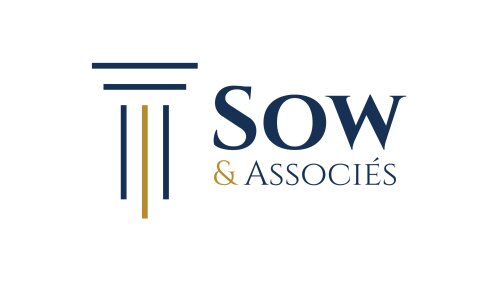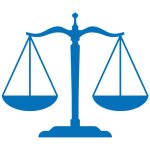Best Animal Law Lawyers in Dakar
Share your needs with us, get contacted by law firms.
Free. Takes 2 min.
List of the best lawyers in Dakar, Senegal
About Animal Law in Dakar, Senegal
Animal Law in Dakar, Senegal, is a specialized area of the law that governs the treatment, welfare, and rights of animals. It covers a range of topics, including animal welfare, cruelty prevention, ownership responsibilities, and the protection of both domestic and wild animals. The legal framework is shaped by national laws, city regulations, veterinary guidelines, and international agreements that Senegal is a part of. While awareness of animal rights is growing, enforcement and understanding of these laws can vary, making legal guidance essential when animal-related disputes arise.
Why You May Need a Lawyer
People in Dakar may seek the advice of an Animal Law lawyer in situations such as:
- Disputes over pet ownership or custody
- Cases involving allegations of animal cruelty or neglect
- Defending against accusations of animal attacks or public disturbance
- Seeking compensation for injury or loss caused by another person's animal
- Starting or operating an animal-related business, such as pet shops, farms, or animal shelters
- Importing or exporting animals, especially endangered species
- Rescuing animals found in poor conditions or reporting suspected abuse
- Understanding the legal obligations related to livestock, pets, or wildlife conservation
- Supporting community animal welfare initiatives or advocacy
Local Laws Overview
In Dakar, Animal Law is informed by various national codes, municipal regulations, and international conventions to which Senegal is a signatory. Key aspects include:
- Animal Welfare: National laws prohibit cruelty toward animals and set basic welfare standards for their care, including food, shelter, and medical attention.
- Animal Ownership: There are specific rules regarding responsible pet ownership, mandatory vaccinations (especially for dogs), and registration requirements for some species.
- Wildlife Protection: Senegal is a member of several international conservation treaties, such as CITES, and imposes strict regulations on the hunting, trade, and possession of protected species.
- Public Health and Safety: Local authorities can intervene if animals pose a risk to human health, such as in cases of rabies outbreaks or uncontrolled stray populations.
- Animal Import and Export: There are regulations regarding the import and export of live animals to control disease and ensure species protection.
- Livestock Regulations: Farmers and herders must abide by rules concerning animal treatment, movement, and sale, especially in urban areas like Dakar.
Frequently Asked Questions
What laws protect animals from cruelty in Dakar?
Senegalese penal law forbids intentional acts of cruelty or neglect that cause unnecessary suffering to animals. Authorities can intervene in cases of reported abuse.
Are certain animal species prohibited as pets in Dakar?
Yes. Some wild, endangered, or dangerous species are prohibited as pets under wildlife protection laws and municipal regulations.
What can I do if my neighbor is mistreating their animal?
You can report suspected animal cruelty to the local police, veterinary services, or animal protection organizations. They can investigate and take appropriate action.
Is pet registration required in Dakar?
Registration is required for some pets, particularly dogs, along with proof of vaccination against rabies and other communicable diseases.
Who is responsible if an animal causes injury or damage?
Generally, the animal's owner is responsible for any damage or injury caused by their animal and may be held civilly or criminally liable.
What are the laws regarding stray animals?
Stray animal management is handled by local authorities and may involve impoundment or humane population control. There are also efforts to encourage responsible pet ownership.
Can I import or export animals to or from Dakar?
Import and export of animals are regulated to protect local ecosystems and prevent disease. Permits, vaccinations, and documentation may be required.
How do laws protect wildlife in Senegal?
Senegalese law prohibits the hunting, capture, or sale of protected wildlife species and implements severe penalties for violations.
What should I do if my animal is seized by authorities?
You have the right to be informed of the reason for the seizure and can appeal or seek legal recourse. A lawyer can assist with recovering your animal.
Are animal welfare organizations active in Dakar?
Yes, several local and international organizations work to protect animals in Dakar, rescue strays, and advocate for better legislation and enforcement.
Additional Resources
For further information or assistance on Animal Law issues in Dakar, consider reaching out to the following:
- Ministry of Environment and Sustainable Development - The primary governmental body overseeing wildlife and animal welfare regulations.
- Veterinary Services (Service Vétérinaire) - Handles issues related to animal health, vaccinations, and disease control.
- Police or Local Authorities - For urgent reports of animal cruelty or dangerous animals.
- Senegalese Society for the Protection of Animals (SPAS) - Provides advocacy, resources, and supports rescues.
- Local veterinarians - Can offer guidance on legal requirements for pet health, vaccinations, and care.
- Lawyers specializing in Animal Law - For personalized legal advice and representation.
Next Steps
If you need legal assistance in Animal Law in Dakar, Senegal, consider the following steps:
- Identify your issue and gather relevant documents or evidence, such as photos, veterinary records, and witness statements.
- Reach out to a qualified lawyer with experience in Animal Law for a consultation. You can obtain recommendations from the Senegalese Bar Association or local advocacy groups.
- If your case involves emergency animal welfare concerns, immediately contact the relevant authorities or animal protection organizations.
- Follow legal advice carefully, keep detailed records, and attend any required appointments or hearings.
- Stay informed about your rights and obligations under local law to prevent future issues and to protect both animals and people in your community.
Lawzana helps you find the best lawyers and law firms in Dakar through a curated and pre-screened list of qualified legal professionals. Our platform offers rankings and detailed profiles of attorneys and law firms, allowing you to compare based on practice areas, including Animal Law, experience, and client feedback.
Each profile includes a description of the firm's areas of practice, client reviews, team members and partners, year of establishment, spoken languages, office locations, contact information, social media presence, and any published articles or resources. Most firms on our platform speak English and are experienced in both local and international legal matters.
Get a quote from top-rated law firms in Dakar, Senegal — quickly, securely, and without unnecessary hassle.
Disclaimer:
The information provided on this page is for general informational purposes only and does not constitute legal advice. While we strive to ensure the accuracy and relevance of the content, legal information may change over time, and interpretations of the law can vary. You should always consult with a qualified legal professional for advice specific to your situation.
We disclaim all liability for actions taken or not taken based on the content of this page. If you believe any information is incorrect or outdated, please contact us, and we will review and update it where appropriate.










